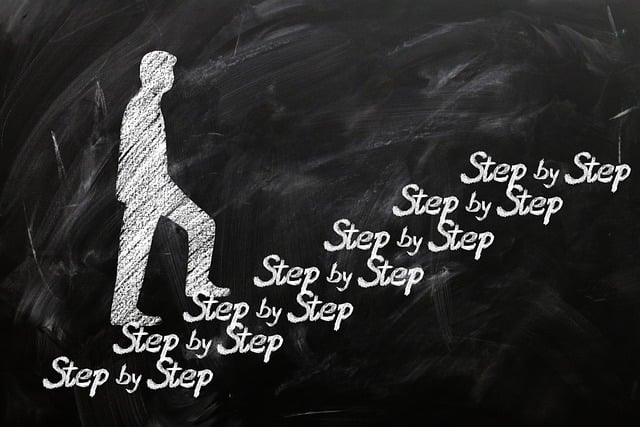Step One: What Is Powerlessness Over Addiction?
Step One – Admitting Powerlessness Over Our Addiction
What is powerlessness in addiction?
Alcoholics Anonymous and Narcotics Anonymous both discuss powerlessness over addiction in Step One. Let’s discuss what that means. As a reminder, Step One from Narcotics Anonymous states:
We admitted we were powerless over our addiction, that our lives had become unmanageable.
12 Steps of Narcotics Anonymous
In Step One, we admit that our lives have been taken over by drugs and alcohol. We no longer have a choice to use – we need to. Our days of drinking or using for recreation or at a specific occasion are gone, and, despite our best efforts or desire, we can’t stop on our own.
Step one also talks about the unmanageability of our lives. Drugs and alcohol make our lives unmanageable in many ways. Sometimes a functioning alcoholic or addict can’t immediately see the unmanageability their addiction is causing. But it’s really very simple. If we want to stop and we promise ourselves we will stop and don’t, then our lives have become unmanageable.
The Power in Admitting Powerlessness Over Addiction
Admitting powerlessness is the first step towards freedom.
At face value, admitting powerlessness may seem like admitting weakness. But that couldn’t be further from the truth. In The Doctor’s Opinion from the Big Book of Alcoholics Anonymous, William Silkworth, MD, tells us that our addiction to drugs and alcohol are the result of a physical allergy. Where others may be able to drink one time, we are driven to keep going – even when faced with dire consequences. Admitting that we have a disease (Dr. Silkworth’s opinion is where the disease-concept of addition comes from) is not weak. We may be powerless over drugs and alcohol, but we are NOT powerless to treat the disease.
Once we admit we are powerless, the world of recovery opens up to us. Getting clean and sober is initially terrifying – I get it because I’ve done it. But the fear is because we can no longer imagine ourselves or our lives without drugs or alcohol. In the Twelve and Twelve from Alcoholics Anonymous, it talks about us feeling like the hole in the donut when stop drinking and using. We’re afraid we’ll feel empty or that we don’t know who we are if we aren’t getting drunk or high. Yet, as my sponsor has so often told me, fear is just false evidence appearing real. Fear is NOT the truth. The truth is recovery introduces us to who we are and allows us to live the lives we were meant to live.
When we admit we are powerless over addiction, we can get help, get well, and take our power back.
Understanding Powerlessness as it Relates to Unmanageability
What does “our lives had become unmanageable” even mean?
Once we admit we are powerless over our addiction, we must also admit that the second part of Step One is true. Addiction causes our lives to become unmanageable. Many addicts and alcoholics struggle with the second part of the first step. If we’ve gone to school and kept our grades up, if we’ve held onto our jobs and even exceled, or if we’ve never been arrested, we may think we’re doing just fine. And we may not see the other ways that addiction makes our lives unmanageable.
So, it’s possible to be a high-functioning addict or alcoholic. But that doesn’t mean our lives are manageable. If we black out and vow never to drink again and then drink the next night, that’s a sign of unmanageability. If we are controlling how and when we drink or use drugs, that, too, is a sign of unmanageability.
Years ago, I was working with another addict and asked her how her addiction had impacted her physically. She answered that she’d suffered no physical consequences as a result of using drugs. However, she’d previously told me that she had a heart attack in her twenties as a direct result of using drugs. When I pointed that out, she had an aha moment, and instantly saw the unmanageability of using.
So, before we claim that our addictions have not caused our lives to become unmanageable, we must really think about our lives. Negative consequences can be blocked by denial (as in the story above) or ignored. That’s the cunning and baffling nature of the disease of addiction.
Are You Ready to Admit You’re Powerless Over Addiction?
The first step isn’t easy, but it’s worth it!
I knew that I was powerless over my addiction for a long time before I had the courage to get help. By the time I did get help, my life was completely unmanageable. You don’t need to wait until you reach the very bottom of the barrel before you ask for help. Getting help now can prevent you from experiencing so much misery. And, with the raging Fentanyl crisis, getting help now can save your life.
At Breakthrough Recovery Outreach, we offer programs for teens and adults suffering from the disease of addiction. Our programs use the twelve-step model of recovery along with therapy, holistic healing to help addicts break the cycle of addiction and find a new way to live.
If you’re ready, please contact us today! We’re committed to saving as many lives as we can, including yours (or your loved ones.)




